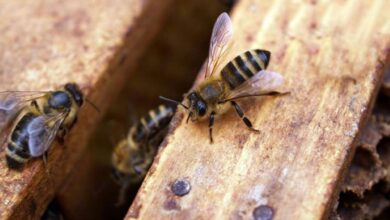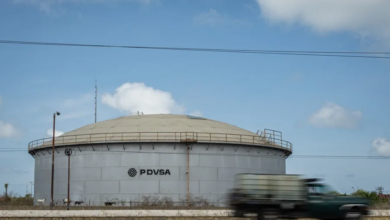Sea turtles: plastic is deadlier than climate change
Research from the University of Exeter assured that 91% of the animals that become tangled in man-made materials, die due to various reasons

Leer en Español: Tortugas marinas: los desechos plásticos son más letales que el cambio climático
Research from the University of Exeter based out of the United Kingdom, one of the most important institutions focusing on the environment, assured that plastic trash is more dangerous than climate change itself. The study assured that “hundreds of marine turtles die every year after becoming entangled in rubbish in the oceans and on beaches, including ‘six-pack’ holders and discarded fishing gear”.
The research team surveyed 106 experts from all around the world who study the major oceans; they stated that 91% of the entanglement turtles were found dead. Man-made materials can cause serious wounds that lead to wounding, maiming, or even asphyxiation.
84% of the 106 experts surveyed in the Atlantic, Pacific, Caribbean, Mediterranean, and Indian ocean responded that they have found turtles tangled in waste.
The investigation found that turtles are becoming tangled in “lost fishing nets, plastic twine and nylon fishing line, as well as six pack rings from canned drinks, plastic packaging straps, plastic balloons string, kite string, plastic packaging and discarded anchor line and seismic cable (…) discarded plastic chairs, wooden crates, weather balloons and boat mooring line”.
The research, published in the Endangered Species Research, demonstrates that plastic pollution increases every year making it more probable that turtles become entangled which leads to their unavoidable death.
Despite 1,000 turtles being found dead on various beaches, the report warned that “gross underestimation” of the scale of the threat to turtles. Not all dead animals become stranded on beaches, especially young animals, some decay at sea. Also, locals remove them from the ocean as they are part of various diets.
“Plastic rubbish in the oceans, including lost or discarded fishing gear which is not biodegradable, is a major threat to marine turtles. We found, based on beach strandings, that more than 1000 turtles are dying a year after becoming tangled up, but this is almost certainly a gross underestimate. Young turtles and hatchings are particularly vulnerable to entanglement,” professor Brendan Godley, the lead author of the research, stated. “Experts we surveyed found that entanglement in plastic and other pollution could pose a long term impact on the survival of some turtle populations and is a greater threat to them than oil spills. We need to cut the level of plastic waste and purse biodegradable alternatives if we are to tackle this grave threat to turtles’ welfare”.
Latin American Post | Santiago Gómez
Copy edited by Susana Cicchetto





